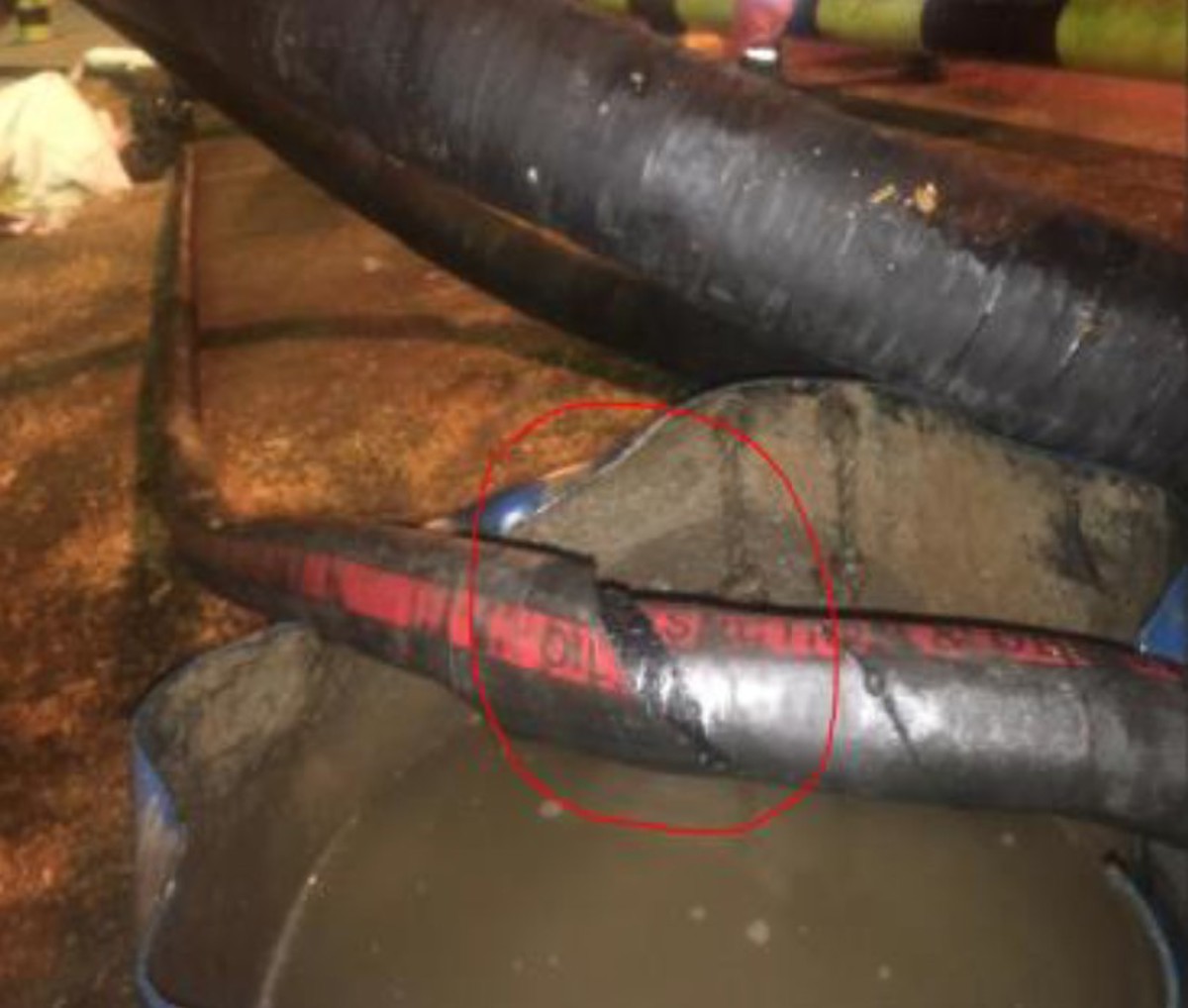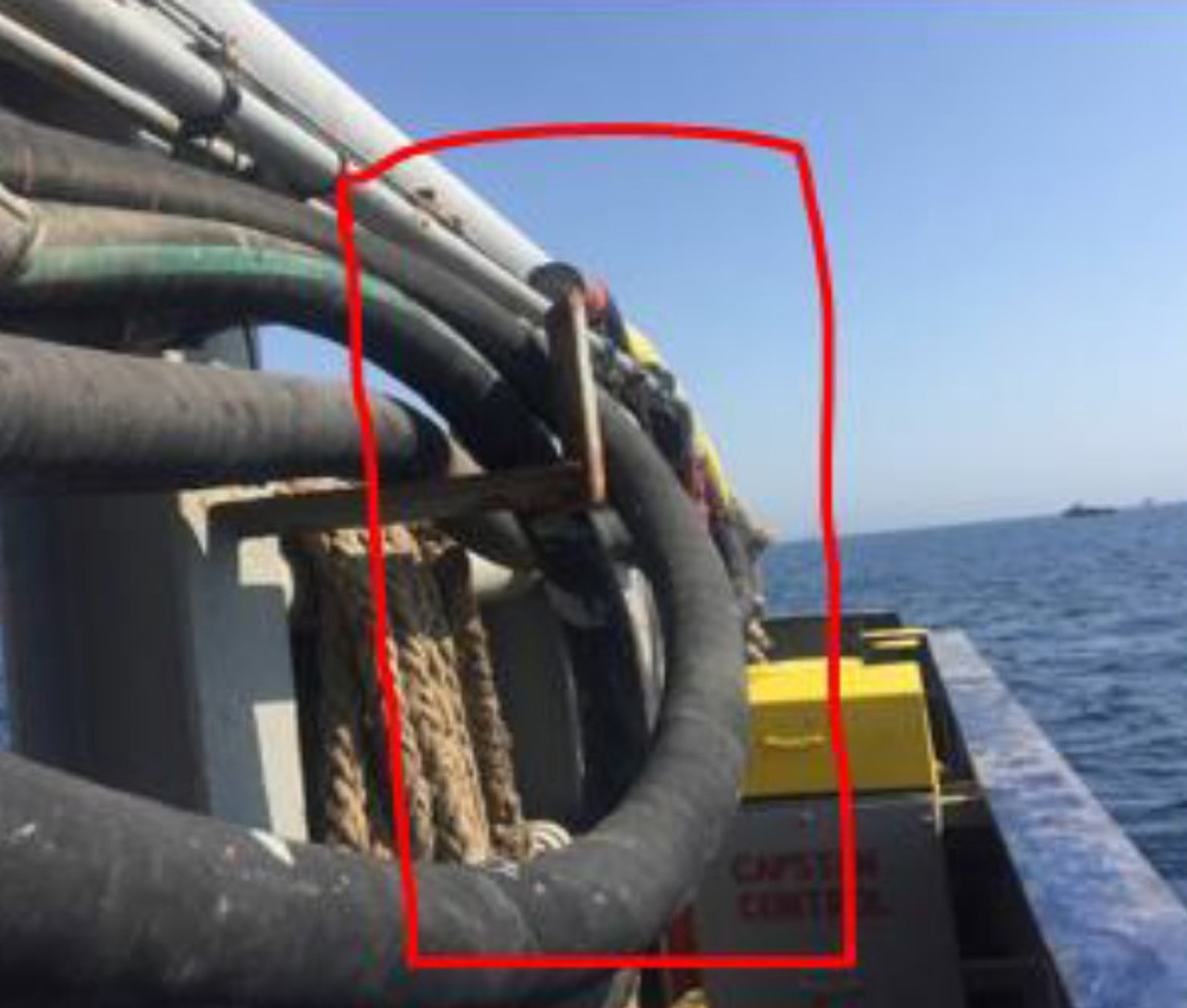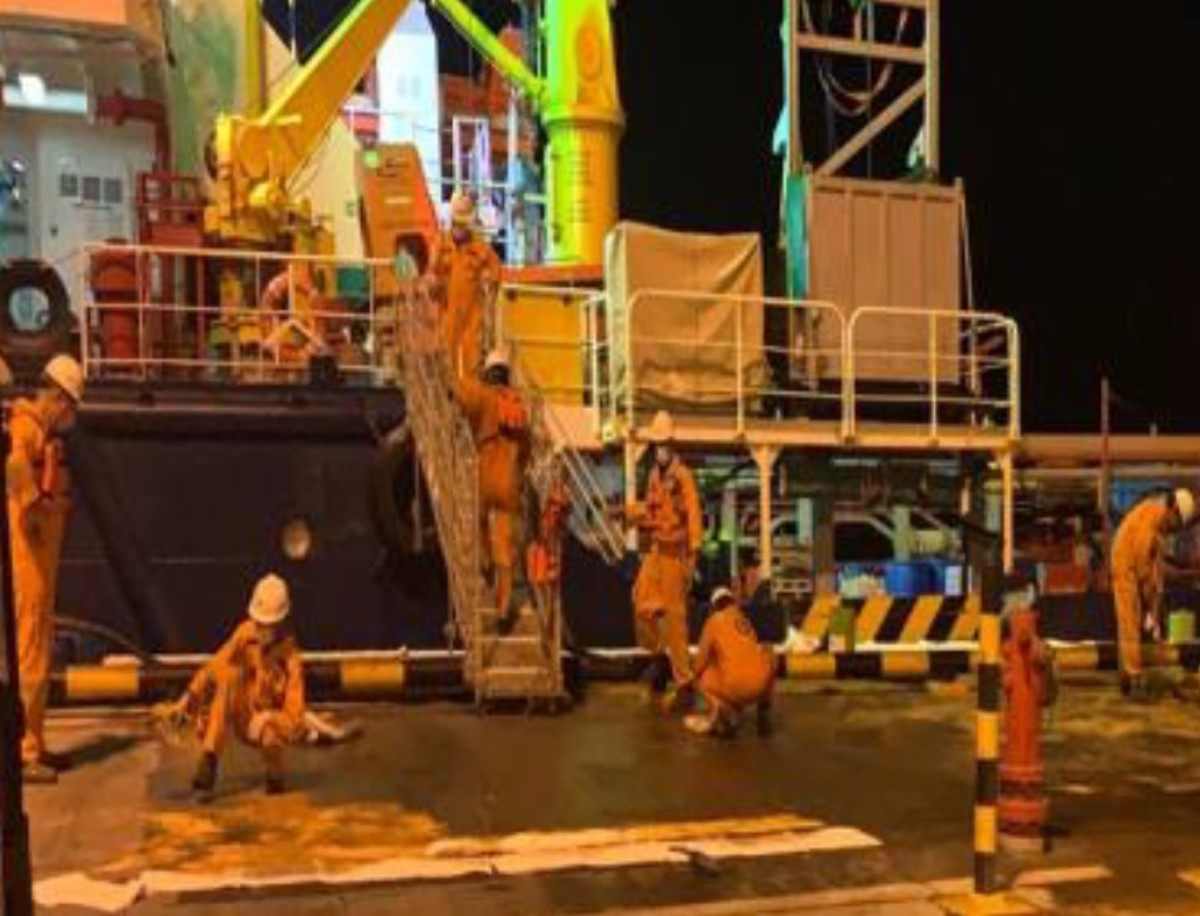Fuel oil hose burst during bunkering
- Safety Flash
- Published on 19 November 2021
- Generated on 28 February 2026
- IMCA SF 31/21
- 1 minute read
Jump to:
During bunkering a vessel in port, a 2” fuel oil hose burst.
What happened?
The hose burst as the fuel transfer rate was increased at the start of the operation.
Around 30-50 litres of fuel oil were spilled on the jetty. Owing to the quick reactions of the Master and crew, no fuel went overboard.
What was the cause?
Our Member notes that this is a preliminary cause and investigation is ongoing.
The reason for the failure has yet to be confirmed; the hose had recently undergone a third-party test and certification.
A suggestion raised was that the fuel oil hose had been damaged over long periods of time by being stowed in an improper coiled position due to its length (longer than the deck stowing location).
Actions
Inspect cargo hose stowage and consider whether those that are stowed in a coiled position, need to be moved or changed in position more frequently so as to avoid damage / kinks in the same location.
Related Safety Flashes
-
IMCA SF 24/21
31 August 2021
-
-
IMCA SF 18/16
4 July 2016
-
IMCA SF 18/16
4 July 2016
-
IMCA SF 18/16
4 July 2016
-
IMCA SF 18/16
4 July 2016
-
IMCA SF 18/16
4 July 2016
IMCA Safety Flashes summarise key safety matters and incidents, allowing lessons to be more easily learnt for the benefit of the entire offshore industry.
The effectiveness of the IMCA Safety Flash system depends on the industry sharing information and so avoiding repeat incidents. Incidents are classified according to IOGP's Life Saving Rules.
All information is anonymised or sanitised, as appropriate, and warnings for graphic content included where possible.
IMCA makes every effort to ensure both the accuracy and reliability of the information shared, but is not be liable for any guidance and/or recommendation and/or statement herein contained.
The information contained in this document does not fulfil or replace any individual's or Member's legal, regulatory or other duties or obligations in respect of their operations. Individuals and Members remain solely responsible for the safe, lawful and proper conduct of their operations.
Share your safety incidents with IMCA online. Sign-up to receive Safety Flashes straight to your email.


